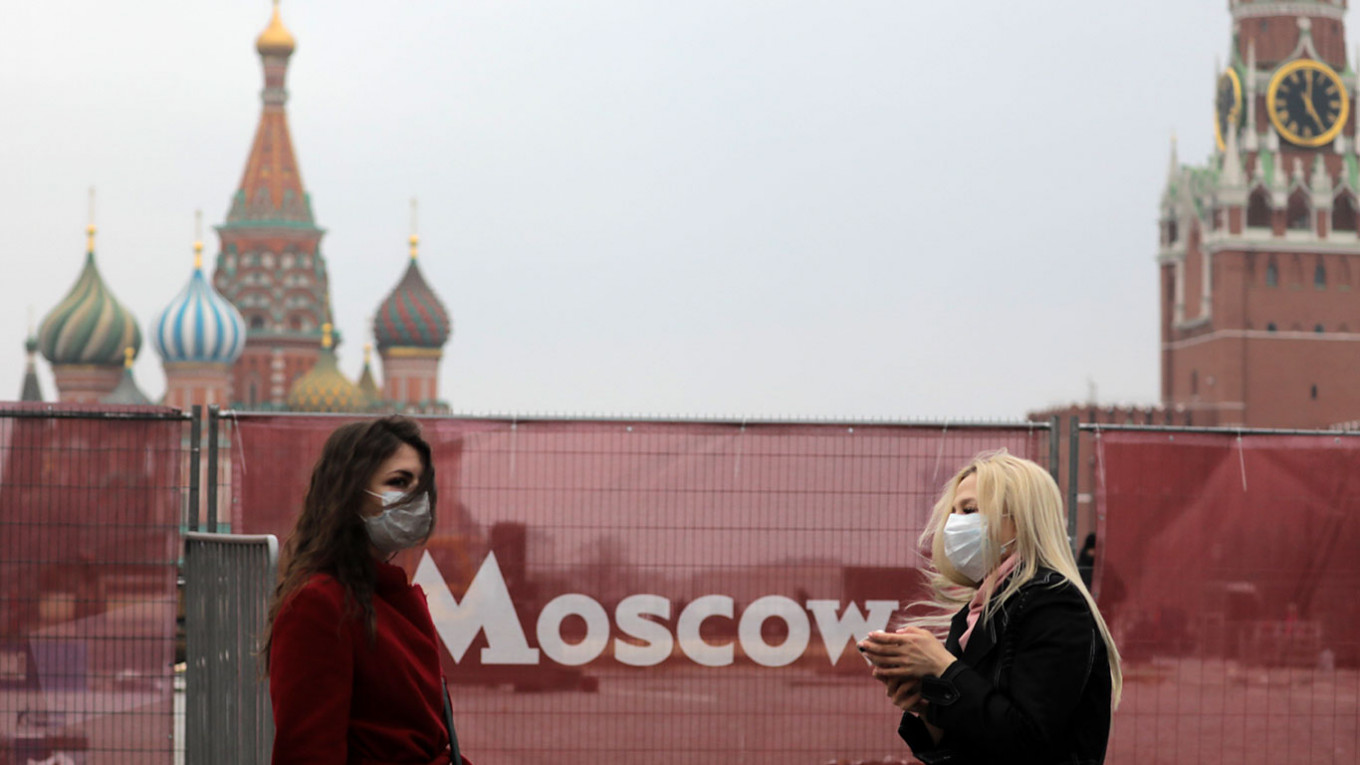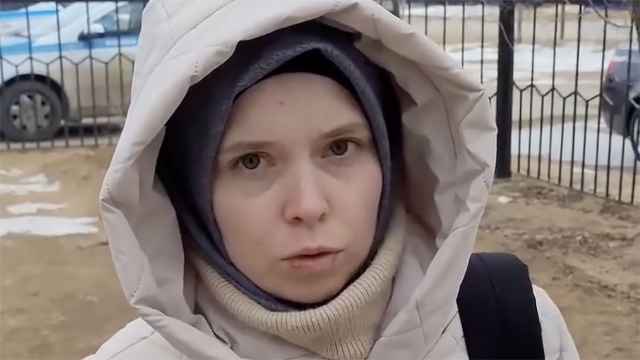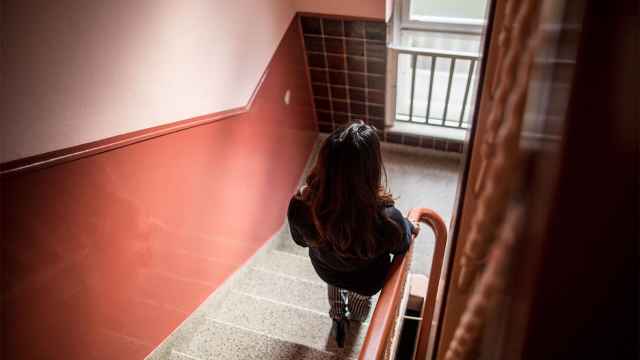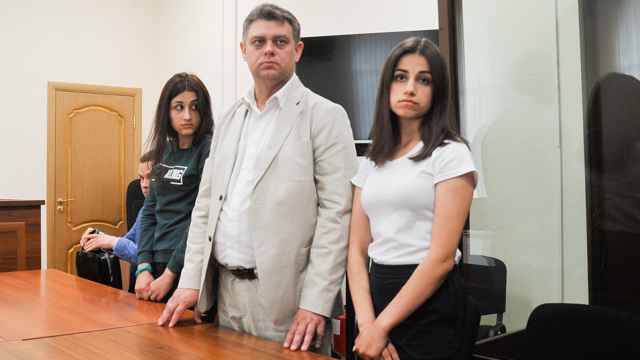In one of Russia’s boldest Eurovision entries in years, singer-songwriter Manizha took to the stage in Rotterdam in May to perform her female empowerment anthem “Russian Woman.”
“Every Russian woman needs to know,” she rapped over a vibrant beat peppered with folk motifs. “You're strong enough, you're gonna break the wall.”
Though the fiery performance was embraced by Eurovision viewers, it didn’t have the same appeal at home and sparked a backlash that reached as high as parliament.
By the end of the year, little had changed for Russian women as the country’s increasingly conservative leadership and the pandemic relegated feminist concerns to the backburner.
Delayed legislation
In 2017 Russia decriminalized some forms of domestic violence — a move activists say enables abusers and strengthens the culture of impunity around these crimes. After that, and in the wake of several high-profile abuse and murder cases, the movement to pass legislation to protect women gained momentum.
When the coronavirus pandemic hit in early 2020, efforts to pass the law were wound back — even as reported abuse cases surged during lockdown.
Despite the delay, lobbying for the bill continued throughout 2021, and Federation Council speaker Valentina Matviyenko promised to introduce domestic violence legislation into the State Duma this fall.
But as the fourth wave of the pandemic caused infections and deaths to soar to record highs, lawmakers instead rushed to advance legislation mandating unpopular QR code health passes to enter public spaces.
“As soon as I found out the government had introduced the QR code law into the Duma, I knew that our law would be delayed again,” former State Duma deputy Oksana Pushkina, a leading voice in the push for domestic violence legislation, told The Moscow Times. “And that’s exactly what happened.”
Following this year’s State Duma elections, just 74 of 450 lower-house lawmakers — 16.4% — are women. In the upper-house Federation Council, women represent 38 out of 170 senators, or 23%.
Key advocates of passing domestic violence legislation are now absent from parliament. Pushkina was not nominated for re-election in this September’s race. And women’s rights activist Alyona Popova, who had made the domestic violence law a central part of her platform, lost her campaign for a seat.
“The people who were leading the women's agenda have now been thrown overboard and can only influence it from the outside,” Popova said in an interview following the vote. “Any action of solidarity is now met with more challenges and resistance.”
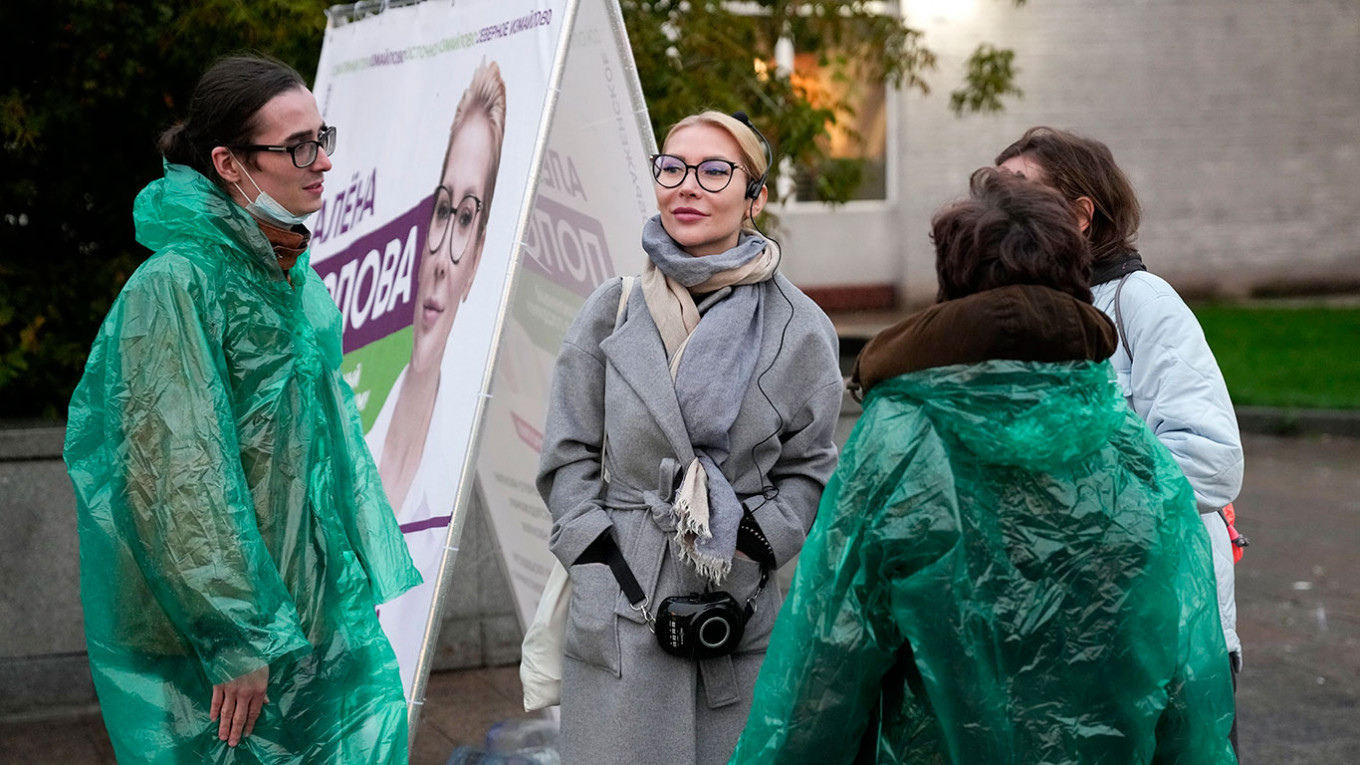
Even if the share of women lawmakers were higher, the political will to pursue feminist policies, much less address a flashpoint issue like domestic violence, simply isn’t there, said political scientist Yekaterina Schulmann.
“The ratings being what they are, the public mood being what it is, it’s evidently too risky to introduce something into the public sphere that will excite passions — and it will. It’s really a topic which concerns everyone,” she said.
Over the past decade, Russian officials have sought to promote what they call “traditional family values” in contrast with Western liberalism. This conservative turn has become even more apparent in recent years, and hardliners in parliament argue that a domestic violence law would interfere in private family matters.
Russian lawmakers generally “operate under the principle of ‘do not trouble trouble until trouble troubles you’,” Schulmann said. “They have enough trouble with this QR code thing. Introducing domestic violence legislation will bring the whole conservative horde down on them.”
After Europe’s top human rights court this week ordered Moscow to pay out nearly 400,000 euros to victims of domestic violence — and outlined steps it must take to protect women, including passing legislation — the Kremlin maintained that Russian law adequately protects women from violence.
"We believe current legislation provides all necessary tools to combat this evil and law enforcement agencies are making efforts," Kremlin spokesman Dmitry Peskov said.
"Of course, unfortunate and tragic incidents do occur," he said, adding: "I don't want to comment on the decision of the court."
For now, Schulmann says most policies affecting women will remain “pro-family,” such as the maternity capital program that gives financial support to families with two or more children.
Silenced voices
Amid a wider chilling of the climate for activism of any kind, many women’s rights advocates this year found themselves silenced or subjected to abuse and harassment for their work.
A leading women’s aid NGO was labeled a “foreign agent” this year, a designation that activists say stifles a key lifeline to victims of abuse.
Several members of the Pussy Riot punk collective spent much of the year under house arrest on charges of inciting an illegal protest after they called on supporters to rally for Kremlin critic Alexei Navalny’s release from jail in late January.
This year also saw increased harassment and abuse of women, LGBT people and people of color by nationalist-patriarchal hate group Muzhskoe Gosudarstvo (Male State).
Grocery store Vkusvill’s ad featuring a lesbian couple’s family brought a storm of backlash from Male State and other anti-LGBT groups, forcing the chain to issue an apology — and the family to flee the country.
Even after Russia formally outlawed Male State as “extremist” in October, prominent feminist activist Daria Serenko received thousands of death threats and other abusive messages from it for writing that migrants are responsible for only a small percentage of crimes in Russia.
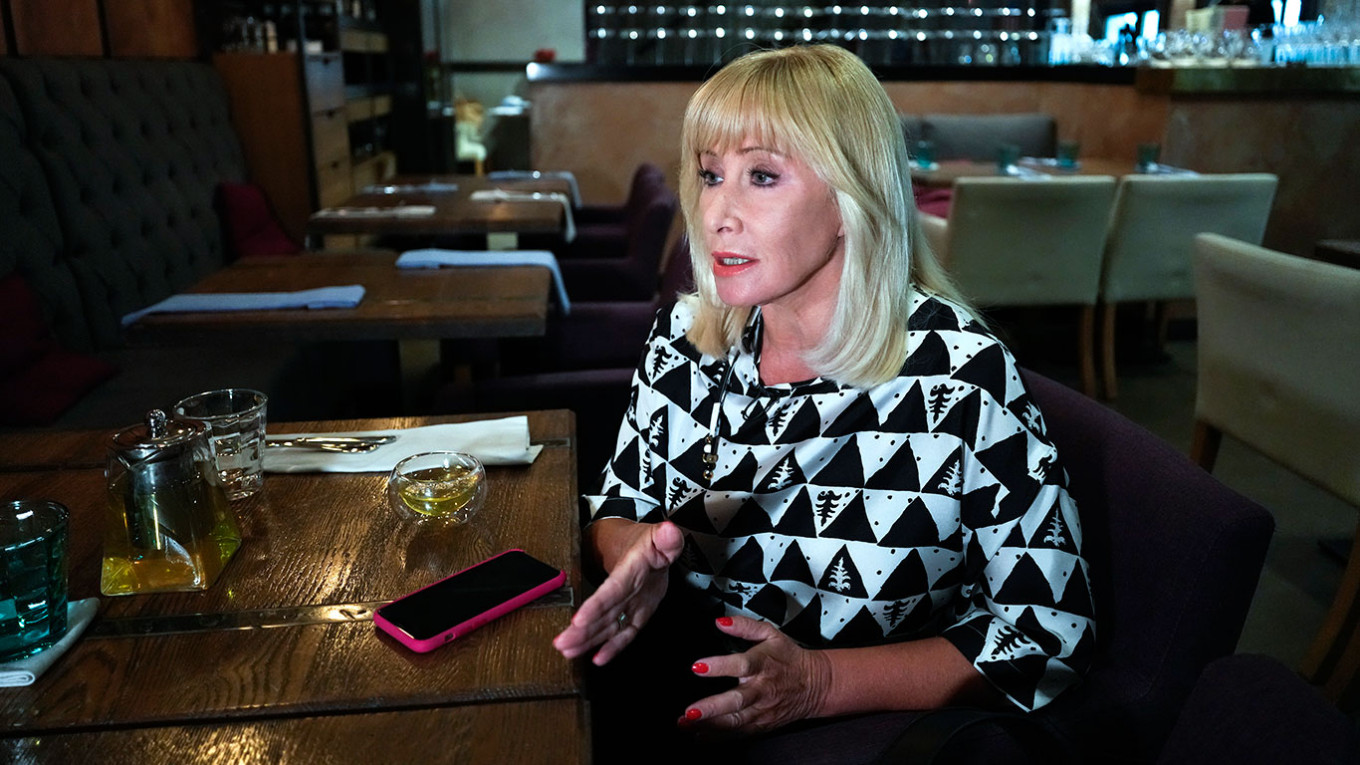
Pushkina said that although the Male State is now banned, she believes there are still deeply entrenched forces within the halls of power that tacitly empower those with radically anti-women, as well as anti-LGBT or anti-minority, views.
“These are ultra-conservative forces which have infiltrated the governance of this country and, by now, are properly integrated within it. We know all who are involved,” she said. “I warned our colleagues that these forces must be stopped right away — otherwise they will feel how powerful they are and do something even worse.”
Waiting for change
While key women’s issues are sidelined from the national conversation, work hasn’t ended to push them forward.
Schulmann stressed that the path toward progress is often slow, especially in a country like Russia.
“These are extremely long processes. They take decades in Russia’s case. It’s like the suffragist movement that took 30 years to achieve its main goal. Progress is mainly achieved by two things: generational change and informational campaigns — making the problem visible, educating audiences that it actually exists and that it can be solved by legislative measures and by them, as well.”
Pushkina said she plans to continue publicly advocating for a domestic violence law and hopes to form a coalition of progressive women’s rights groups.
She has also joined forces with Popova and fellow former Duma candidate Marina Litvinovich to launch an initiative to encourage more women to run for office.
“As it turns out, there are a lot of people in my country who are on the side of common sense,” she said.
A Message from The Moscow Times:
Dear readers,
We are facing unprecedented challenges. Russia's Prosecutor General's Office has designated The Moscow Times as an "undesirable" organization, criminalizing our work and putting our staff at risk of prosecution. This follows our earlier unjust labeling as a "foreign agent."
These actions are direct attempts to silence independent journalism in Russia. The authorities claim our work "discredits the decisions of the Russian leadership." We see things differently: we strive to provide accurate, unbiased reporting on Russia.
We, the journalists of The Moscow Times, refuse to be silenced. But to continue our work, we need your help.
Your support, no matter how small, makes a world of difference. If you can, please support us monthly starting from just $2. It's quick to set up, and every contribution makes a significant impact.
By supporting The Moscow Times, you're defending open, independent journalism in the face of repression. Thank you for standing with us.
Remind me later.



